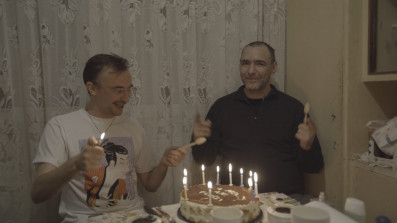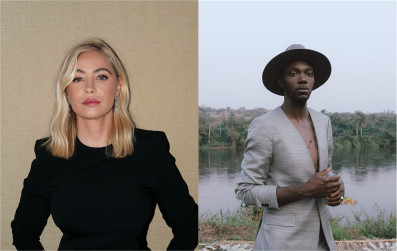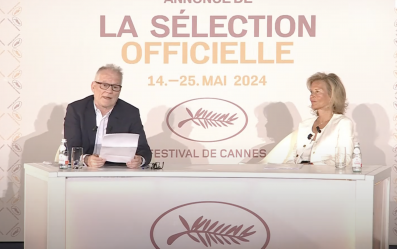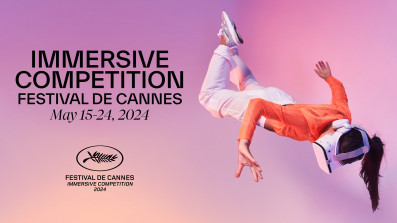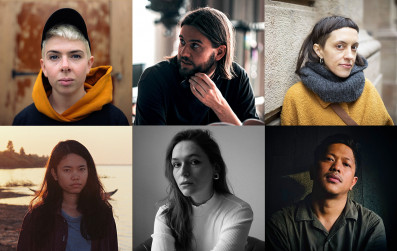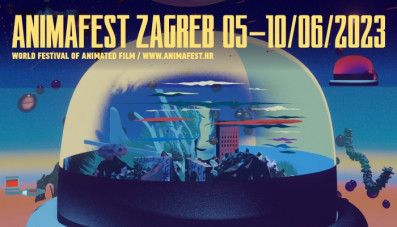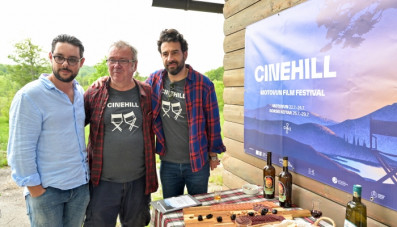
How festivals like Far East Film Festival look to the past to help ensure cinema’s future
Article by Jolie Fan Yuxuan attendee of the FEFF 2022 Campus programme for aspiring writers and critics
The Far East Film Festival is designed to spark conversations about trends in contemporary Asian cinema but the annual event also looks to the past to entertain and inspire.
Each year, in the northern Italian town of Udine, FEFF programmes a series of retrospectives, spotlighting films rarely seen outside Asia. It’s a growing trend at film festivals all over the world, fueled by advances in archival technology that are able to bring these old films back to life - and for veteran festival head and programmer Roger Garcia, these retrospectives are a vital component of any line-up.
“[Festivals] are like driving a car. You’re looking in the rearview mirror, you're looking at what speed you’re going at, and then you‘re looking down the road. So, you’re looking at the past, present and future,” says Garcia, who programmed the “Odd Couples” retrospective at this year’s 24th edition of FEFF. “That’s the function of a film festival. I don’t believe in film festivals that only show new films, I think that is incomplete. What festivals should try and do is not only introduce contemporary cinema but also how to view the history of cinema.”
Film festivals are more than simply showcasing recent discoveries, exciting world premieres and acquiring exclusive film rights, they are a celebration of cinematic history, rescuing forgotten narratives from oblivion and giving them a platform to be seen again. To Garcia, festivals have the power to change the interpretation of cinematic heritage.
“Film festivals give you an opportunity to reevaluate and reflect on the history of cinema,” he says. “Film culture is not only writing now but also what writing was before, in cinema and in text. The only way you can get a perspective of where you are now is by understanding where you were before.”
Several major film festivals have turned retrospectives (usually blanketed together with the “Out of Competition” section) into permanent programmes running alongside main competitions: the Berlin International Film Festival’s “Berlinale Classics”, Karlovy Vary International Film Festival’s “Out of the Past”, and recently the Venice International Film Festival’s launch of the “Permanent Festival of Restored Film” are cases in point. These trends signal a ballooning awareness of the film festival’s preservationist agendas and its significance in the revival and the re-circulation of ‘old’ films into the current milieu.
“Rotterdam, and FEFF as well, are not going to just program canonical classics. Quite the contrary, our festivals are going to look for past directors who deserved more attention and more focus from the European press on Asian subject matter that is historically situated,” says International Film Festival Rotterdam’s (IFFR) festival director, Vanja Kaluđerčić, on the art of programming retrospectives.
In keeping with this move to spotlight the history of Asian cinema but also to show the full breadth of Asian classics, the FEFF launched the first edition of the Second-Hand Film Market in 2021. The aim is to promote the rediscovering and re-interpretation of restored hits that had previously been unseen within the popular festival circuit. It’s been a bold move as the market’s basic instinct is to “expose new talents so that their careers take off within the industry,” according to Kaluđerčić. Yet, by dovetailing the retrospective programme with the market, FEFF is tapping into the audience’s renewed fascination with these “classics” thereby increasing commercial release opportunities.
“FEFF did a robust job in covering the corners of Asian cinema and its history, creating its own channel for watching retrospectives that were previously not visible, granting watershed access to these films of history,” explains Paolo Bertolin, a programmer at the Cannes Directors’ Fortnight and the Venice International Film Festival as well as at FEFF.
This year, FEFF showcased three retrospectives, all armed with 2K and 4K restorations. “Restored Classics” was screened physically at the Visionario cinema as well as online, via FEFF’s streaming channel. Included were films from Japan’s Mike Takashi (“Audition”), Fukasaki Kinji (“Battle Royale Director’s Cut”) and Shinoda Masahiro (“Pale Flower”) as well as Hong Kong’s Johnny To (“The Heroic Trio”) and Taiwan’s lesser-known director of wuxia pictures, Joseph Kuo (“The Swordsman of all Swordsmen”).
There were also two thematic mavericks – “Odd Couples,” and “Visions of Manila” – specially curated programmes by Roger Garcia, Kiki Fung and Max Tessier. Centred on re-reading film texts through a critical contemporary lens, these profiles spark a dialogue between the West and the East, broaching complex notions of racial and class difference, from interracial romance to fantasies of urban life in the bustling Philippine capital. Subversive in their own right, these selections re-contextualise filmmaking from the past by giving voice to marginalized identities.
Garcia describes this paradox of the new within the old: “The history of cinema is an evolving thing, we are making new discoveries all the time or we’re changing our views on cinema. Look at the ‘Odd Couples’ retrospective, we changed our views on relationships between men and women of different races.”
Jolie Fan Yuxuan attended the Far East Film Festival as part of its 2022 Campus programme for aspiring writers and critics



